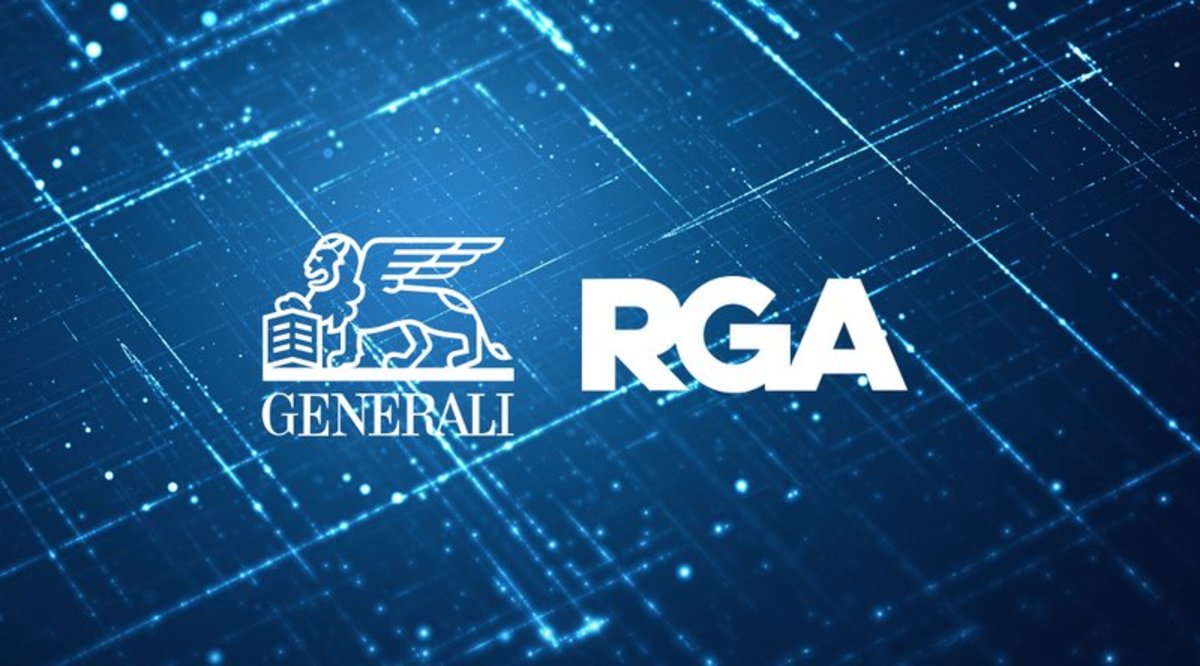
Two major players in the global insurance industry, Generali Group and Reinsurance Group of America (RGA), have announced that they are joining the Blockchain Insurance Industry Initiative B3i to further explore the potential use of distributed ledger technology for the insurance and health reinsurance industries.
Since its launch in October 2016, the B3i initiative has gained attention and achieved a global scope. The current 15 members of B3i include Achmea, Aegon, Ageas, Allianz, Generali, Hannover Re, Liberty Mutual, Munich Re, RGA, SCOR, Swiss Re, Sompo Japan Nipponkoa Insurance, Tokio Marine Holdings, XL Catlin and Zurich Insurance Group.
“We are excited to join this new initiative and look forward to playing an active part in it,” said Steve Hales, head of Connected Insurance at Generali Group. “It represents another milestone that confirms our commitment to creating value for our customers by embracing new technology which in turn can be used to mitigate risk and improve efficiency. The blockchain initiative is particularly important in insurance where the secure and efficient exchange of information can benefit from disruptive technology that could eventually lead to game-changing applications.”
Generali, a multinational group with a global presence founded in Italy in 1831, is the largest insurer in Italy and one of the largest in the world.
“We believe that B3i is a key initiative in the insurance ecosystem that could further modernize our industry and pave the way to unexplored opportunities,” added Paolo Ribotta, head of Global Corporate & Commercial at Generali Group. “We have invested in the transformation of our corporate and commercial business, especially in multinational programs, where the digitalization is crucial to ensure the highest level of service to our international customers. Our customers in all industries are exploring and investing in distributed ledgers and smart contract technology to achieve end to end synergies, integration and efficiency. We want to continue to speak their language, helping them to drive their business adding value beyond the policy in a simpler and smarter way.”
B3i will explore ways to leverage distributed ledger technologies to streamline the exchange of data between reinsurance and insurance companies, starting with a proof-of-concept pilot project about transacting reinsurance contracts amongst each other. “If blockchain technology proves to be a viable tool, it could transform the insurance industry through a shared, transparent record of contract-related information,” Generali said in a statement.
Major life and health reinsurance firm Reinsurance Group of America (RGA) also announced that it has joined B3i. Reinsurance indicates the practice, common in the insurance industry, to swap insurance contracts as a means of risk management and tax mitigation. RGA, one of the largest global life and health reinsurance companies, is the only global reinsurance company to focus primarily on life- and health-related reinsurance solutions. Founded in 1973, the company now numbers among the leading global providers of life and health reinsurance and financial solutions.
The forthcoming blockchain technology project of RGA will be channeled through RGAx, a wholly owned subsidiary of RGA established in 2015 as an “innovation accelerator” for the life insurance industry.
“Blockchain technology has the potential to link insurance entities in a powerful data-sharing framework, and the B3i consortium and pilot project can demonstrate and accelerate this innovation,” said RGAx VP Farron Blanc. “At RGA, we are always excited to partner with those who are trying to achieve similar goals of efficiently deploying capital and knowledge to provide financial protection to society at large.”
Black told Bitcoin Magazine: “Essentially B3i is a consortium of some of the world’s largest insurers and reinsurers who realize the collective value and importance that distributed ledger technology can play in terms of business to business contracts, such as a primary insurer-to-reinsurer treaty.”
“The minimum viable product will focus on natural catastrophe contracts. Successful applications [of blockchain technology] in the reinsurance sector will involve streamlining the process between all the intermediaries (brokers, insurers, reinsurers), and could dramatically improve the ability of all of the various functions that touch these large treaties (e.g., technical accounting, claims, underwriting, IT, finance and valuation),” explained Blanc.
The potential killer apps of blockchain technology in the insurance sector at large are, according to Blanc, more difficult to predict. “We’ve been sponsors of a few public blockchain hackathons; and a lot of the cases that get demoed involve distributed marketplaces for regular consumers to transfer/protect their risk,” concluded Blanc. “I’m less bullish on those types of applications, because of the various asymmetric incentives and information problems that can crop up. I am excited about what blockchains could do with respect to upgrading the invisible infrastructure (e.g., the millions of data sources that are called every time someone submits a claim, or applies for new coverage).”










